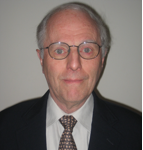Francis E. Kennedy Jr. Honored by ASME for Contributions to the Field of Tribology
Francis E. Kennedy Jr. Honored by ASME for Contributions to the Field of Tribology
 NEW YORK, September 25, 2012 — Francis E. Kennedy Jr., P.E., Ph.D., a resident of Hanover, N.H., and professor of engineering, emeritus at the Thayer School of Engineering at Dartmouth College, will be honored by ASME. He is being recognized for seminal contributions concerning thermal phenomena in frictional sliding interfaces, including early application of finite element analysis of temperature distributions, development of closed-form surface temperature design equations, and experimental verification via novel approaches such as thin-film surface thermocouples. He will receive the Mayo D. Hersey Award.
NEW YORK, September 25, 2012 — Francis E. Kennedy Jr., P.E., Ph.D., a resident of Hanover, N.H., and professor of engineering, emeritus at the Thayer School of Engineering at Dartmouth College, will be honored by ASME. He is being recognized for seminal contributions concerning thermal phenomena in frictional sliding interfaces, including early application of finite element analysis of temperature distributions, development of closed-form surface temperature design equations, and experimental verification via novel approaches such as thin-film surface thermocouples. He will receive the Mayo D. Hersey Award.
The award, established in 1965, is bestowed for distinguished and continued contributions to the advancement of the science and engineering of tribology. It will be presented to Dr. Kennedy during the International Joint Tribology Conference, which is being held in Denver, Oct. 8 through 10.
Kennedy has served on the faculty of the Thayer School of Engineering at Dartmouth College since 1974. His primary responsibilities have included teaching a variety of undergraduate and graduate courses in mechanical engineering, advising students, and conducting research in tribology and biomechanics.
During his career, Kennedy has conducted research on a wide range of topics in tribology, including friction and frictional heating, wear of metals and polymers, lubrication, contact mechanics and biotribology. His research received funding from the National Science Foundation, NASA, the Office of Naval Research, the National Institutes of Health, and other government and industrial research organizations. Results of his research have been published in over 150 refereed technical papers and more than 15 book chapters. He established research collaborations and worked on projects with tribologists at universities and research institutes elsewhere in the United States, as well as in France, Japan, Israel, Thailand and Romania.
Since his retirement in 2009, Kennedy has continued his involvement with research projects dealing with wear of new metallic materials, wear of ultra-high molecular weight polyethylene components of knee prostheses, wear of metal-on-metal hip implants, and lubrication of knee prostheses.
An ASME Fellow, Kennedy has held numerous positions, ranging from Student Section advisor to the ASME Student Section at Dartmouth College (1976-92) to currently serving on the Tribology Division's Nomination and Oversight Committee and representing the division on the Robert Henry Thurston Lecture Award Committee. He was chair of the Tribology Division (1993-94), and chair of the division's Honors and Awards Committee (2008-09) and Computer Technology Committee (1976-84). He also was chair of the ASME/STLE (Society of Tribologists and Lubrication Engineers) Tribology Conference (1989-90) and vice chair of the ASME/Joint Societies Committee for Tribology Design Services (1986-92). He served on the Society's board of editors (1993-98), was associate editor (1990-93) and chief technical editor (1993-98) of the Journal of Tribology, and was associate editor of Applied Mechanics Reviews (1985-88).
Additionally, Kennedy is a founder (1981) of the ASME Upper Valley Subsection (of the Green Mountain Section in Vermont and western New Hampshire). He served two terms as chair in the '80s, was vice chair (2000-12) and is currently chair (2012-13). He was honored with the Society's Burt L. Newkirk Award in 1976, a Dedicated Service Award in 1995 and a Best Paper Award from the Journal of Tribology in 2007.
Kennedy received his bachelor's degree in mechanical engineering at Worcester Polytechnic Institute, Massachusetts, in 1963. He earned his master's degree in mechanical engineering at Stanford University, California, in 1965; and his Ph.D. in mechanics at Rensselaer Polytechnic Institute (Troy, N.Y.) in 1973. He is a registered professional engineer in New Hampshire.
About ASME ASME helps the global engineering community develop solutions to real world challenges. Founded in 1880 as the American Society of Mechanical Engineers, ASME is a not-for-profit professional organization that enables collaboration, knowledge sharing and skill development across all engineering disciplines, while promoting the vital role of the engineer in society. ASME codes and standards, publications, conferences, continuing education and professional development programs provide a foundation for advancing technical knowledge and a safer world.



